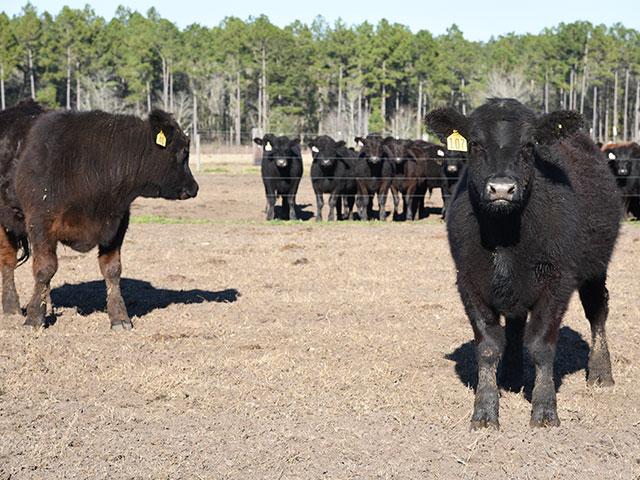Ask the Vet
Buying Time for a Chronic-Bloater Calf
READER QUESTION:
We had a calf bloat last fall, shortly after weaning. We treated him like our veterinarian told us to -- mineral oil, antibiotics, frothy bloat drench, sodium bicarbonate and probiotics. He got better with treatment but bloated several more times over the next month. We thought he was finally healthy, so we put him back in the feedlot. He did fine for several weeks but bloated again. We have adjusted his diet, even tried an all-hay diet, but I am having to tube him every day. Our vet says he is a chronic bloater, and we should sell him. I don't want to sell someone else my problems. I'd like to just get him to slaughter. Do you have any suggestions?
DR. MCMILLAN'S ANSWER:
I agree that you have a chronic bloater. There are two types of bloat: frothy bloat and free gas bloat. Frothy bloat is more common and usually occurs when cattle are on lush pasture. Certain legumes, including alfalfa and some clovers, increase the risk. Components in these forages combine with the rumen gas to produce a stable foam that cannot be eructated.
P[L1] D[0x0] M[300x250] OOP[F] ADUNIT[] T[]
Free gas bloat occurs if there is a blockage in the esophagus that prevents eructation, or nerve damage that slows or stops the eructation process. Almost certainly this calf has free gas bloat due to nerve damage.
Even if you do everything right, occasionally this kind of thing will happen. I recommend getting a good cattle nutritionist to look at your feeding program and your rations and see if changes might be needed. Also, remember when mixing feed there are at least three "rations." There's the one the nutritionist formulates, the one you think you are feeding and the one the cows eat. Make sure each component is accurately measured and mixed correctly. Over-grinding feed is a common mistake, which reduces long stem fiber and can lead to a plethora of digestive and performance issues, including bloat.
One particularly effective treatment for any GI upset is transfaunation. This involves transferring rumen contents, including bacteria, protozoa and fungi, from a healthy donor animal to the rumen of a sick animal. Think of this as probiotics supersized.
As a last resort, a rumen fistula may control bloat until the calf can be processed. With this procedure, your veterinarian makes an incision in the left flank and into the rumen and sutures the interior rumen wall to skin.
**
Editor's Note:
Please contact your veterinarian with questions pertaining to the health of your herd or other animals. Every operation is unique, and the information in this column does not pertain to all situations. This is not intended as medical advice but is purely for informational purposes.
Write Dr. Ken McMillan at Ask the Vet, 2204 Lakeshore Dr., Suite 415, Birmingham, AL 35209, or email vet@progressivefarmer.com.
(c) Copyright 2022 DTN, LLC. All rights reserved.






